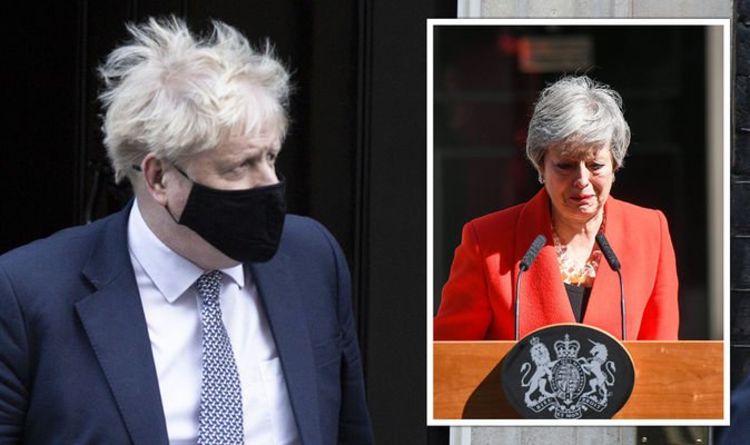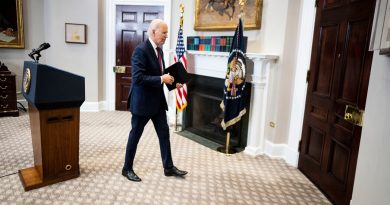What happens if Boris Johnson resigns? Next steps as PM endures lockdown party backlash
Boris Johnson apology: Replacements ‘are worse’ says pundit
We use your sign-up to provide content in ways you’ve consented to and to improve our understanding of you. This may include adverts from us and 3rd parties based on our understanding. You can unsubscribe at any time. More info
Boris Johnson issued an in-person apology during Prime Minister’s Questions on Wednesday, where he apologised for attending a party held in May 2020, when the Government had outlawed social gatherings. The widely ridiculed speech saw him claim to have “implicitly” believed he was joining Downing Street staffers on the job for 25 minutes before leaving. Unwilling to accept his words, several veteran politicians and other prominent figures have called for his resignation.
What happens if Boris Johnson resigns?
The Prime Minister is currently on loose footing with the electorate and MPs, each now demanding his exit.
His apology in Parliament marked the culmination of months of controversy, mostly revolving around illicit parties held at Downing Street.
News organisations have recorded 11 alleged occasions, suggesting a series of breaches to the lockdown ordered by Mr Johnson’s party.


As his position becomes increasingly untenable, Mr Johnson has an ever-shrinking list of last resorts.
Among them is getting ahead of Parliament or the Conservatives – both capable of forcing him out – and resigning.
The latter option gives him an element of control over the situation and would allow Conservatives to save face.
If Mr Johnson resigned, he would give up his position but wouldn’t have to hand over to an opposition Government.

If he followed in Theresa May’s steps and resigned, he would step down as Prime Minister and trigger a leadership race.
As with 2019, Mr Johnson could stay in the role until a successor can take over, or step back immediately and leave a caretaker PM in his place.
With the former situation, the rungs of Government beneath him would function unaffected, as he would have the same powers and cabinet.
Then, potential candidates can put their names forward to become his replacement.

They would have to go through the shortlisting process first, where they need to gather support from at least five party MPs.
If they fail, they’re out of the race, while successful candidates can progress.
They must secure support from another 16 MPs in round two and 32 in round three.
In the penultimate round, voters will exclude everyone but the two most popular candidates.
The final round will see the party – both members and MPs – vote on those two, with the most popular candidate made Tory leader and, by default, the next Prime Minister.
In 2019, Boris Johnson became PM after securing votes from 160 MPs, while only 77 voted for his competitor, Jeremy Hunt.
The length of the process depends on the 1922 committee of Conservative backbenchers, as they set the timescale.
After the race decides a victor, what happens next for Mr Johnson is up to him.
Every Prime Minister is an MP, and Mr Johnson represents Uxbridge and South Ruislip.
A leadership race would not uproot him from this constituency, meaning he could continue sitting in the House of Commons.
Mrs May chose this path following her resignation in 2019 and is still in post for Maidenhead in Berkshire.
Otherwise, he could choose to retire from politics and settle for life in the private sector, which would provide him with a more generous salary than he earned as Prime Minister.
The new Government may then decide whether it wants to give the electorate an opportunity to hand it a mandate.
If a leadership election does take place, approximately 200,000 Tory members will decide the political future for the entire country.
That total is a vanishingly small proportion of the approximately 47.6 million-strong electorate.
As such, some will argue the remaining 47.4 million people should have a say as well.
Source: Read Full Article


